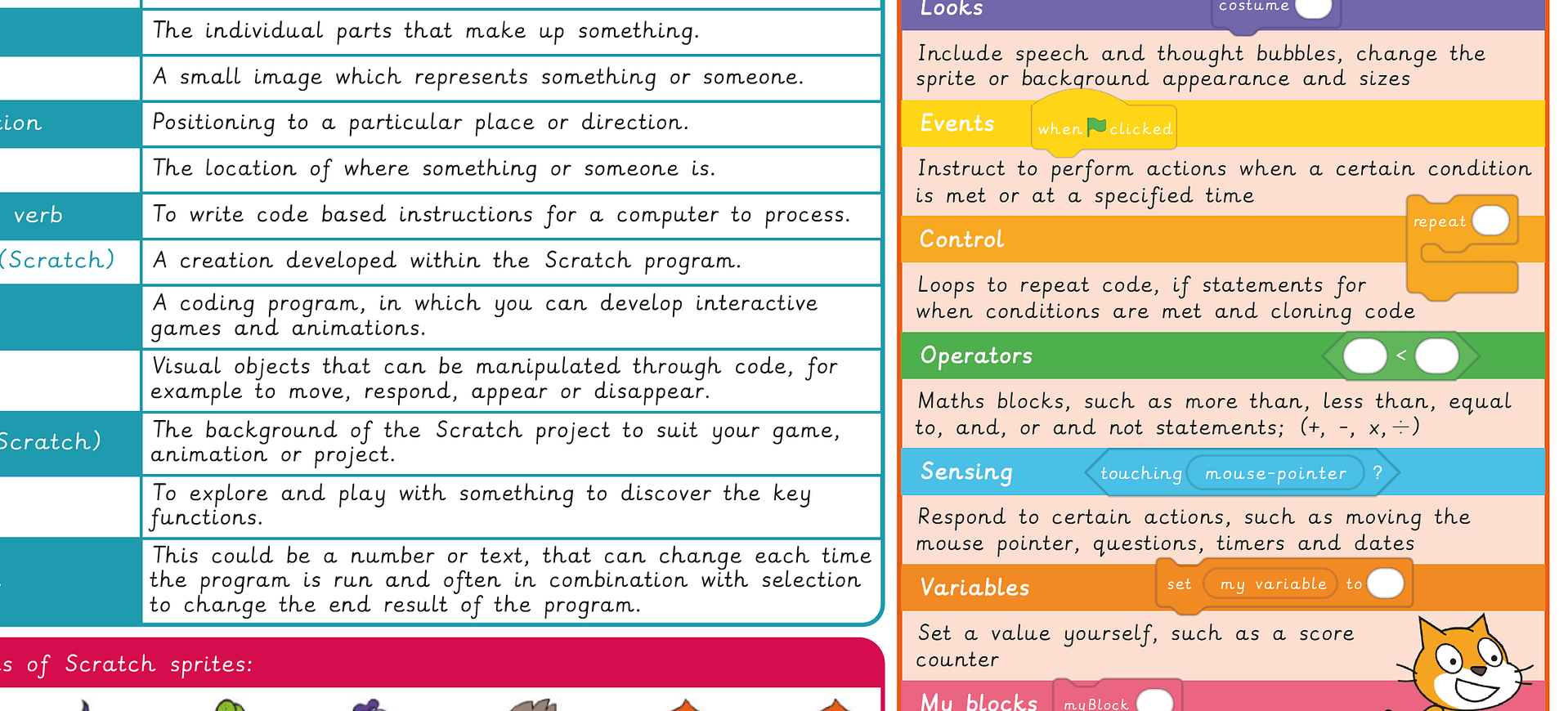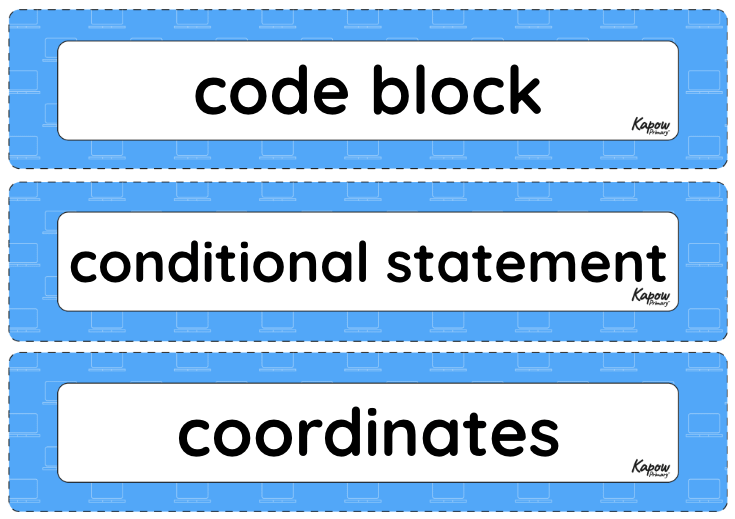Programming 1: Further coding with Scratch
Creating a simple script in Scratch, using decomposition and understanding what variables are.
- Subjects >
- Computing >
- Lower key stage 2 >
- Year 4 >
- Programming 1: Further coding with Scratch >
-
Programming 1: Further coding with Scratch
Please note
Scratch is a project of the Scratch Foundation, in collaboration with the Lifelong Kindergarten Group at the MIT Media Lab. It is available for free at https://scratch.mit.edu.
Unit outcomes
Pupils who are secure will be able to:
- Understand how to create a simple script in Scratch.
- Add or change a sprite and prevent it from rotating.
- Use decomposition to identify key features and understand how to decipher actions that make the quiz game work.
- Understand what a variable is and how to use the ‘say’ and ‘ask’ blocks.
- Create a variable and be able to use a variable to record a score.
- Understand what a variable is and how it works within a program.
Suggested prior learning
Archived unit: Programming: Scratch (ARCHIVED)
If your school does not have access to Google, there is also a Microsoft version of this unit.
Teacher coding skills videos
Lessons
Lesson 1: Scratch reminder
- To recall the key features of Scratch.
Lesson 2: Identifying what code does
- To understand how a Scratch game works by using decomposition to identify key features.
Lesson 3: Introduction to variables
- To recognise what a variable is.
Lesson 4: Making a variable
- To understand how to make a variable in Scratch.
Lesson 5: Times tables project
- To create a quiz using variables.
Key skills
Key knowledge
Related content
Unit resources

Knowledge Organiser – Computing Y4: Further coding with Scratch
Aimed at pupils, a single page which gives key facts and definitions from the unit "Programming 1 – Further Coding…

Vocabulary display – Computing Y4: Programming 1: Further coding with Scratch
A display version of the key vocabulary from the Programming 1: Further coding with Scratch unit.
Cross-curricular opportunities
Maths: 2-D grids, coordinates and translations. Multiplication and division facts for the 3, 4 and 8 tables.
English: Spoken Language – speculating, hypothesising, imagining and exploring ideas.

